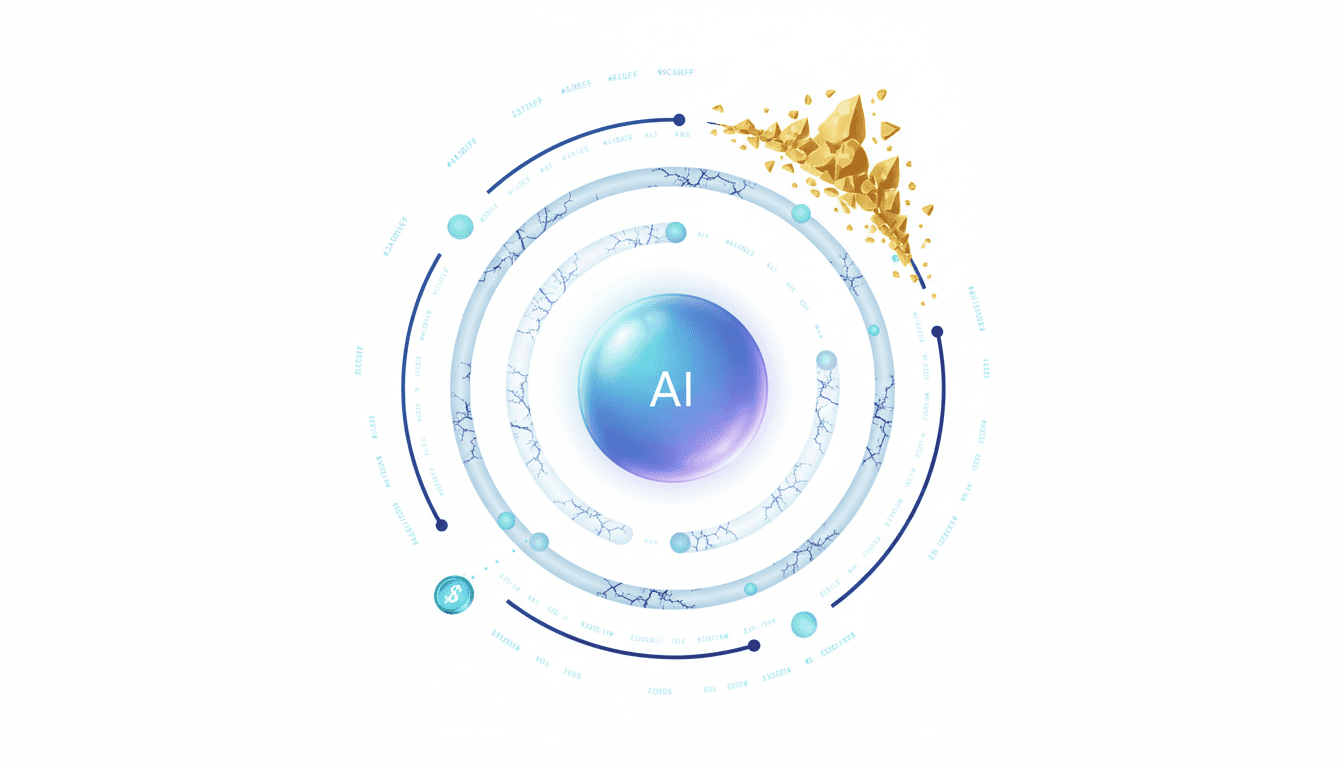Google Gemini API Updates: Boost AI Agent Reliability

⚡ Quick Take
Google's latest Gemini API updates aren't just another feature drop—they're a smart shift toward making AI agents ready for the big leagues. By layering in better control, reliability, and ways to check the facts, Google is steering the discussion away from sheer model power toward the solid governance that enterprises really need to get on board.
Summary: Google has unveiled major updates to its Gemini API, zeroing in on four key areas: Thought Control for clearer reasoning transparency, Structured Outputs for dependable data formats, Google Search Grounding for spot-on factual accuracy, and Thought Signatures for cryptographic verification of agent actions. This set of tools directly tackles the main hurdles keeping autonomous AI agents from thriving in production setups.
What happened: Now, developers can tap into fresh API parameters that lock in schema-compliant JSON outputs, root model responses in live search results complete with citations, peek inside and steer the model's internal reasoning steps, and cryptographically sign an agent's actions for an unchangeable audit trail. These come alongside tweaks for Media Resolution, letting you balance cost, speed, and quality in multimodal apps without guesswork.
Why it matters now: Have you ever built something exciting in the lab, only to watch it crumble under real pressure? The AI world is growing up, leaving behind the flashy demos for the gritty reality of unpredictable systems that can break at any moment. These updates are Google's straightforward response to calls for reliability, openness, and real accountability—positioning the Gemini API as a strong player for crafting enterprise-level agent workflows you can actually rely on for business.
Who is most affected: Folks like AI engineers, app developers, and product managers working on agentic systems stand to gain the most. It ramps up the heat on OpenAI's Assistants API and Anthropic's tool-use features, flipping the competition from just model benchmarks to how sturdy and governable the whole developer platform is.
The under-reported angle: Sure, the docs break down each feature on its own, but—from what I've seen in these kinds of releases—the magic happens when they team up into a full "trust stack" for AI. It's not four standalone tools; it's a seamless setup for agents that you can control (Thought Control), count on (Structured Outputs), keep factual (Google Search Grounding), and track down the line (Thought Signatures).
🧠 Deep Dive
Ever wonder why those slick AI agent demos never quite make it to the production line without a ton of headaches? For months, that's been the nagging gap—the prototypes dazzle, but deploying them feels like herding cats. Issues like shaky JSON parsing, made-up facts, and zero visibility into how the model ticks have turned building critical agents into a real slog. Google's new Gemini API update hits this head-on, supplying the behind-the-scenes fixes to shift agentic systems from experimental sketches to something robust for everyday use.
At its heart, this update boils down to two smart combos that pack a punch. Take Structured Outputs paired with Google Search Grounding—they're a one-two against the reliability woes. Developers can now demand strict JSON schemas, ditching the old "hope it works" string fiddling that's wrecked so many builds. Tie that to grounding through Google Search, and suddenly agents spit out outputs that are not just easy for machines to read but backed by fresh, citable facts. It transforms the LLM from a wild idea generator—creative, sure, but often off-base—into a steady, referenceable thinker you can trust.
Then there's the other duo: Thought Control and Thought Signatures, zeroing in on transparency and keeping things accountable. With Thought Control, you get a real window—a sort of checkpoint—into the model's step-by-step reasoning, so you can review, record, or even stop an agent's inner chatter before it acts. That's a game-changer, moving beyond just grabbing the end result to overseeing the whole thought process, bumps and all. Thought Signatures takes it further, slapping a cryptographic seal on those actions and the thoughts behind them for a tamper-proof history. In fields like finance, healthcare, or law where rules are tight, that's not optional—it's essential.
Rounding it out are practical tweaks that nod to how engineering actually works in the trenches. The updated Media Resolution options, for instance, let you dial in exactly how you want to juggle cost, latency, and quality for multimodal stuff. It's a must for scaling vision-based agents without breaking the bank—or the timeline. By wrapping all this together, Google isn't chasing the title of smartest model anymore; they're building the safest, most steerable, and open platform for devs to create on, which feels like the right bet for what's coming.
📊 Stakeholders & Impact
Stakeholder / Aspect | Impact | Insight |
|---|---|---|
Developers & Enterprises | High | Drastically reduces the engineering overhead for building robust AI agents, accelerating the path from proof-of-concept to production deployment. |
AI / LLM Providers | High | Sets a new benchmark for enterprise-grade agent APIs. This puts pressure on competitors like OpenAI and Anthropic to match this level of governance and reliability. |
Regulators & Policy | Significant | Provides a technical foundation for AI accountability. Features like Thought Signatures and auditable reasoning offer a concrete way to enforce an auditable trail for AI decisions. |
End-Users | Medium | Indirectly benefits from more reliable and factual AI-powered applications, with fewer errors and more trustworthy information from grounded services. |
✍️ About the analysis
This is an independent i10x analysis based on a synthesis of official Google developer documentation, blog announcements, and API release changelogs. It is written for developers, engineering managers, and technical product leaders who are evaluating and implementing the next generation of AI agent platforms.
🔭 i10x Perspective
But here's the thing—this update marks a real turning point in the market, from asking if AI can reason to whether we can trust, guide, and verify that reasoning when it's live and handling real stakes. Google is playing to its strengths here, using search for solid grounding and its enterprise backbone for strong governance, to sketch out what "production-ready" AI truly means. It's a deliberate push to set Gemini apart, not just on smarts alone, but on the reliability and accountability that businesses crave, plenty of reasons why that resonates.
Still, the big question lingering—and one I've been mulling—is that classic trade-off: these controls might tame the wild, inventive spark that powers LLMs in the first place. We'll see how the market weighs it, but Google's wager on structured, trackable dependability could well edge out the freer, more explosive approaches from rivals as we race toward fully autonomous AI.
Related News

OpenAI Nvidia GPU Deal: Strategic Implications
Explore the rumored OpenAI-Nvidia multi-billion GPU procurement deal, focusing on Blackwell chips and CUDA lock-in. Analyze risks, stakeholder impacts, and why it shapes the AI race. Discover expert insights on compute dominance.

Perplexity AI $10 to $1M Plan: Hidden Risks
Explore Perplexity AI's viral strategy to turn $10 into $1 million and uncover the critical gaps in AI's financial advice. Learn why LLMs fall short in YMYL domains like finance, ignoring risks and probabilities. Discover the implications for investors and AI developers.

OpenAI Accuses xAI of Spoliation in Lawsuit: Key Implications
OpenAI's motion against xAI for evidence destruction highlights critical data governance issues in AI. Explore the legal risks, sanctions, and lessons for startups on litigation readiness and record-keeping.